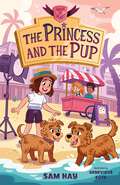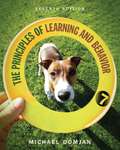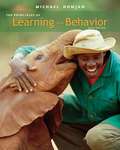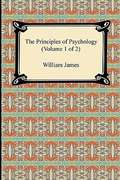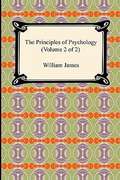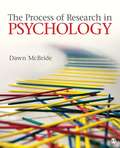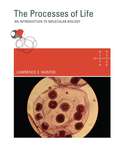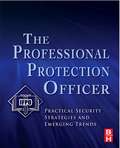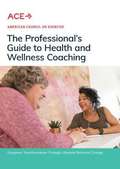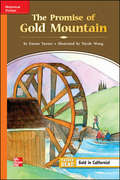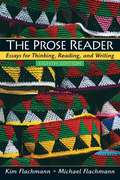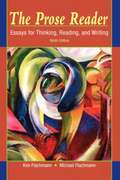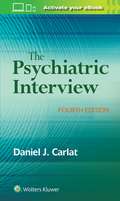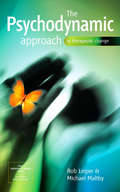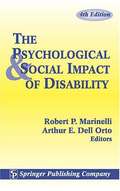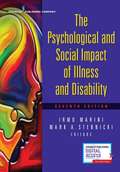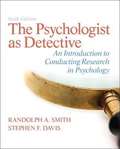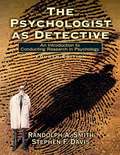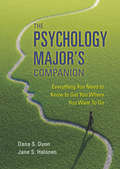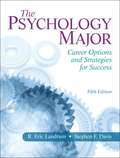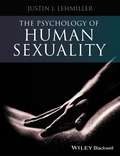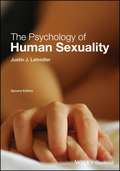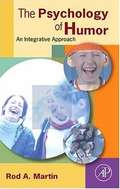- Table View
- List View
The Princess and the Pup: Agents of H.E.A.R.T. (Agents of H.E.A.R.T. #3)
by Sam HayA simple day at the beach for Evie and her friends quickly spirals into chaos, filled with ice cream, film crews, magical disguises, dogs of all shapes and sizes, and a surprisingly secretive fairy tale figure in The Princess and the Pup, Sam Hay's third Agents of H.E.A.R.T. chapter book adventure, illustrated by Genevieve Kote. Evie’s happily ever after is almost here. Her parents are allowing her to help out around the diner, she’s made a couple of fantastic friends, and Fudge, the adorable stray puppy she found, only has a few days left in his trial period, before they can officially adopt him. Sure, there’s been a few crashes and mishaps along the way, but Evie the Wonder Waitress has become a pro at dealing with dog related chaos. Or so she thought…right up until Fudge crashes into a film set on the beach! Not only does he befriend Princess, the adorable puppy star of the show, he also gains the attention of the show’s animal trainer, who is always looking for smart talented pups to train! If Evie can’t hide Fudge away, she could lose him forever… Fortunately, help is just a wish on a magical storybook away!
The Principles of Learning and Behavior
by James W. GrauThis learning and behavior textbook provides a comprehensive introduction to the elementary forms of learning that have been the focus of research for much of the 20th century.
The Principles of Learning and Behavior
by Michael DomjanThe book covers habituation, classical conditioning, instrumental conditioning, stimulus control, aversive control, and their applications to the study of cognition and to the alleviation of behavior problems. Biological constraints on learning are integrated throughout the text, as are applications boxes that relate animal research to human learning and behavior. The book closely reflects the field of research it represents in terms of topics covered, theories discussed, and experimental paradigms described
The Principles of Psychology (Volume #1)
by William JamesAnyone wanting a thorough introduction to psychology will find this work useful and engaging. This first volume contains The Scope of Psychology, The Functions of the Brain, On Some General Conditions of Brain Activity, Habit, The Automaton Theory, The Mind-Stuff Theory, The Methods and Snares of Psychology, The Relations of Minds to Other Things, The Stream of Thought, The Consciousness of Self, Attention, Conception, Discrimination and Comparison, Association, The Perception of Time and Memory.
The Principles of Psychology (Volume #2)
by William JamesAnyone wanting a thorough introduction to psychology will find this work useful and engaging. This second volume covers sensation, imagination, reasoning, instinct, emotions, will, Hypnotism, movement, and the perception of objects and space.
The Process of Research in Psychology (1st edition)
by Dawn M. McbrideThe book offers a clear description of concepts and skills important for conducting psychological research with clear, simple examples to illustrate these concepts. Author Dawn McBride covers the material in a methods text, but organizes as chronological steps in designing, conducting, and presenting a psychology research study. The concepts are presented using the special pedagogical approach throughout the text to present students with various learning opportunities in multiple contexts.
The Processes of Life: An Introduction to Molecular Biology
by Lawrence E. HunterRecent research in molecular biology has produced a remarkably detailed understanding of how living things operate.
The Professional Protection Officer: Practical Security Strategies and Emerging Trends
by International Foundation for Protection OfficersThe Professional Protection Officer, the successor to our Protection Officer Training Manual, is a comprehensive training guide and instructional text that covers all of the subjects essential to the effective training of protective officers. This material, now in its eighth edition, has been class-tested for many years and has been the training manual for the International Foundation for Protection Officers (IFPO) since 1988. The new book contains brand new chapters on the most significant issues facing the protection officer today, including Central Alarm Stations, Communications, Surveillance, Access Control, Detection Equipment, Apprehension and Detention Procedures, and Information Security. Written by leading security trainers and educators, The Professional Protection Officer retains the exceptional organization and coverage of previous versions and adds critical updates and fresh pedagogy, as well as hundreds of diagrams, illustrations and self-quizzes. This new book is tailored for the training and certification needs of first-line security officers and supervisors throughout the private and public security industry.
The Professional's Guide to Health and Wellness Coaching
by American Council on ExerciseProfessional Guide to Health & Wellness Coaching
The Promise of Gold Mountain (Reading Wonders #Approaching Level, Grade 3)
by Nicole Wong Emma TurnerNIMAC-sourced textbook
The Prose Reader: Essays for Thinking, Reading, and Writing (Eighth Edition)
by Kim Flachmann Michael FlachmannThe Prose Reader contains twenty new essays, including an interesting and provocative photo essay. The eighth edition has updated some of the essays, added new authors, and introduced many new topics, such as committing to a place, language acquisition, learning to read, the theory of evolution, girl-fighting, bingeing on college campuses, violence in the United States, gay marriage, graffiti, DNA testing, the Patriot Act, insomnia, and the American Civil War.
The Prose Reader: Essays for Thinking, Reading, and Writing (Ninth Edition)
by Kim Flachmann Michael FlachmannEffective writing through critical thinking. Above all others, this rhetorical patterns reader provides a comprehensive grounding in critical thinking as the foundation for close reading and effective writing. Just as important, by exposing the reader to interesting and insightful prose by a diversity of top writers, the reader is motivated to respond in writing and discussions. By thinking, reading, and writing on three increasingly difficult levels - literally, interpretively, and critically - readers can better learn the processes and skills necessary to be successful in all their writing experiences.
The Psychiatric Interview (Fourth Edition)
by Daniel J. CarlatNow DSM-5 updated! Using a unique and effective combination of mnemonics, practical techniques, and phrasing examples that illustrate the nuances of the interviewing process, The Psychiatric Interview, 4th Edition helps you establish a rapport with patients and gain valuable clinical insights. Now updated to incorporate the DSM-5 and current research, this popular manual teaches you how to improve your interviewing skills, breaking down this complex area into concise information you can put to use immediately in your practice.
The Psychiatric Interview: The Art of Understanding
by Shawn SheaThe 2nd edition of this clinically based guidebook that focuses on the initial psychiatric interview provides practical suggestions for analyzing and altering the interview to mesh with the specific needs of the patient. Contains detailed discussions of how to open an interview, how to interpret nonverbal communication, how to make more natural transitions, and how to arrive at accurate diagnoses. Offers special techniques for eliciting information from depressed, psychotic, and personality-disordered patients. This edition presents updated DSM-IV criteria, new strategies in suicide assessment, and an annotated interview section accompanied by sample write-ups with tips in the appendix.
The Psychodynamic Approach to Therapeutic Change (SAGE Therapeutic Change Series)
by Rob Leiper Michael Maltby`It is well written and well organised and I'm sure it will be of help and interest to researchers and practitioners concerned with the therapeutic action of psychodynamic treatment' - Penelope Waite, Nurturing Potential Change is the central purpose of all counselling and psychotherapy, but how it is conceptualized and worked with varies according to the theoretical approach being used. The Psychodynamic Approach to Therapeutic Change explores the nature of psychological change from the psychodynamic perspective and describes the process through which clients can be helped to come to terms with painful experiences and develop new ways of relating. In the first part of the book, Rob Leiper and Michael Maltby look at therapeutic change in relation to psychological health and maturity. They explore what motivates people to change and also why resistance occurs. The main part of the book outlines the collaborative process that clients and therapist work through to bring about change and highlights the role of the therapist in: ] creating the conditions for clients to express their thoughts, feelings and memories ] developing clients' awareness and understanding of their psychological processes, and ] providing `containment' for the client's psychological projections. The final part of the book sets personal therapeutic change in a wider social context, linking individual change with community and organisational development. Combining core psychodynamic concepts with contemporary thinking, The Psychodynamic Approach to Therapeutic Change provides a lively and up-to-date integration of ideas on the change process which will be of great value to trainees and practicing counsellors and psychotherapists.
The Psychological And Social Impact Of Disability
by Arthur E. Dell Orto Robert P. MarinelliMarinelli and Dell Orto continue the premise of their earlier editions of this widely adopted text and present a realistic perspective on disability. Carefully selected articles and personal narratives capture the unique aspects of the psychological and social effects of disability. Formatted to include thought-provoking study questions and disability awareness exercises, this text is recommended for students in rehabilitation counseling and physical therapy education programs, as well as professionals in rehabilitation, psychology, and social work.
The Psychological and Social Impact of Illness and Disability
by Irmo Marini Mark A. StebnickiNow in its seventh edition, this bestselling classic continues to be the most comprehensive and diverse text available on the psychosocial aspects of illness and disability. It is substantially revised to reflect the growing disparity between the haves and the have-nots and incorporates social justice issues throughout the text. In addition to new and updated information integrated throughout the book, the seventh edition features two new chapters addressing social justice in regards to depression and disability, and the psychosocial aspects of grief, death, and dying. Additionally, the text now includes an Instructor’s Manual and PowerPoint slides. Combining a mix of seminal work from rehabilitation counseling legends with current theoretical and treatment approaches, the book provides a practical, real-life perspective and offers broad and inclusive coverage of the day-to-day challenges of working with a diverse and marginalized population. Additionally, the text analyzes barriers to enabling patients with disabilities and improving their quality of life. Chapter objectives, review questions, and personal narratives in each chapter facilitate in-depth learning.
The Psychologist as Detective: An Introduction to Conducting Research in Psychology
by Randolph A. Smith Stephen F. Davis<p>The Psychologist as Detective introduces students to the research process. The authors treat psychological research as a detective case in which a problem is presented, clues are discovered, evidence is evaluated, and a report is prepared for consideration by peers. <p>Upon completing this book, readers will be able to: <p> <li>Think critically about research and research methods <li>Analyze research as a problem solving procedure <li>Develop research skills by looking at examples of research studies <li>Evaluate evidence from a research study and prepare a report or summary of the case</li></p>
The Psychologist as Detective: An Introduction to Conducting Research in Psychology (Fourth Edition)
by Randolph A. Smith Stephen F. DavisThe Psychologist as Detective conveys the excitement of research methodology through a lively, conversational style. To make the study of the research process interactive and accessible for readers, pedagogical features and critical thinking activities are integrated throughout the volume. Actual student research appears in each chapter to increase relevance and heighten reader interest. This text evaluates the science of psychology, research ideas and hypotheses, ethics, nonexperimental methods and the basics of experimentation variables and control, statistics, designing-conducting-analyzing and interpreting experiments, as well as alternative research designs, external validity, critiquing experimental research and writing and assembling an APA-format research report. For individuals involved with or interested in psychological research.
The Psychologist's Companion
by Robert J. Sternberg Karin SternbergThe Psychologist's Companion is intended for students as well as young professionals and writers at all stages of their careers seeking inspiration and guidelines for better scientific writing. This book is also a resource for researchers in related fields. It has been comprehensively updated, revised, and extended for its fifth edition and includes the latest style guidelines of the American Psychological Association's Publication Manual (sixth edition, 2009) as well as chapters encompassing the entire research process from doing literature research and planning an experiment to writing the paper. It features new chapters on literature research; ethics; and generating, evaluating, and selling ideas. The Psychologist's Companion also provides information on writing book proposals, grant proposals, and lectures.
The Psychology Major's Companion: Everything You Need to Know to Get Where You Want to Go
by Dana S. Dunn Jane S. HalonenWith good advising, hard work, and focused energy, undergraduates majoring in psychology can have before them a future full of amazing possibilities. The objective of this book is to help students to declare the psychology major if it is in their best interests to do so, to learn strategies regarding how to produce optimal gains in the major experience, and to prepare for either graduate school or a psychology-related professional life.<P><P> To create this guide, authors Dunn and Halonen drew extensively on experiences with their own students, as well as interactions with colleagues, especially those who are active in the Society for the Teaching of Psychology (Division 2 of the American Psychological Association).
The Psychology Major: Career Options and Strategies for Success
by Stephen F. Davis R. Eric LandrumThis text standardizes and catalogs much of the practical advice that professors often give to students--providing tips on how to do well in all classes, how to find research ideas, and how to write papers in general APA format. <p><p> Also, the book contains up-to-date career information that faculty might not normally have at their fingertips, including the latest salary figures for a number of psychology-related jobs and occupations.
The Psychology of Human Sexuality
by Justin J. LehmillerThis book offers a comprehensive overview of human sexual behavior from a biopsychosocial perspective.
The Psychology of Human Sexuality
by Justin J. Lehmiller<p>The thoroughly revised and updated second edition of The Psychology of Human Sexuality explores the roles that biology, psychology, and the social and cultural context play in shaping human sexual behavior. The author – a noted authority on the topic and an affiliate of the acclaimed Kinsey Institute - puts the spotlight on the most recent research and theory on human sexuality, with an emphasis on psychology. <p>The text presents the major theoretical perspectives on human sexuality, and details the vast diversity of sexual attitudes and behaviors that exist in the modern world. The author also reviews the history of sexology and explores its unique methods and ethical considerations. Overall, this important and comprehensive text provides readers with a better understanding of, and appreciation for, the science of sex and the amazing complexity of human sexuality.</p>
The Psychology of Humor: An Integrative Approach
by Rod A. MartinResearch on humor is carried out in a number of areas in psychology, including the cognitive (What makes something funny?), developmental (when do we develop a sense of humor?), and social (how is humor used in social interactions?) Although there is enough interest in the area to have spawned several societies, the literature is dispersed in a number of primary journals, with little in the way of integration of the material into a book. Dr. Martin is one of the best known researchers in the area, and his research goes across subdisciplines in psychology to be of wide appeal. This is a singly authored monograph that provides in one source, a summary of information researchers might wish to know about research into the psychology of humor. The material is scholarly, but the presentation of the material is suitable for people unfamiliar with the subject-making the book suitable for use for advanced undergraduate and graduate level courses on the psychology of humor-which have not had a textbook source
